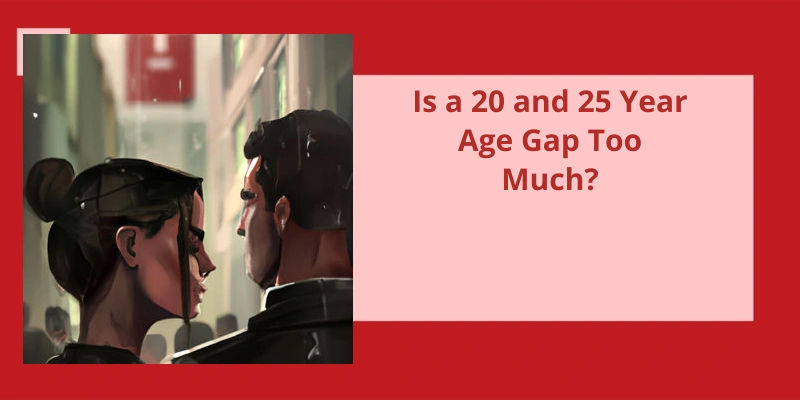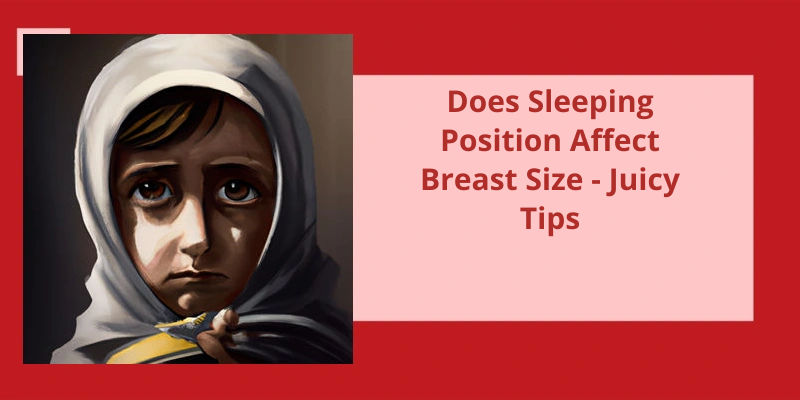Age gaps in relationships have been a topic of debate for ages, with some people believing that love knows no age while others question the practicality and ethics of such relationships. However, as society evolves and people become more open-minded, we come to realize that love comes in all shapes and sizes and that we shouldn’t be quick to judge. While there are certainly challenges that come with having a significant age gap in a relationship, it’s important to focus on finding common ground rather than dwelling on what sets you apart. So, is a 20 and 25 year age gap too much? The answer is subjective and varies from couple to couple. Ultimately, what matters most is that both partners are happy and fulfilled in their relationship.
Is 20 Years Too Much of an Age Gap?
Age difference in a relationship can bring unique experiences and perspectives that may enrich the relationship. However, it could also lead to certain cultural divides, assumptions, and stereotypes that could strain the relationship. There are those who believe that age gap relationships are doomed to fail, but it’s important to note that every relationship is different and unique. The success of a relationship depends on compatibility, communication, and mutual respect rather than on age alone.
It’s also important to note that power dynamics could come into play when there’s a significant age gap in a relationship. The older partner may have more life experience, financial stability, and emotional maturity, which could lead to imbalances in the relationship. The younger partner may feel inadequate or powerless, while the older partner may feel burdened by the responsibility of being a mentor or caregiver. Both partners need to be aware of these dynamics and address them openly and honestly.
The partners may learn from each other and broaden their horizons by exchanging experiences and perspectives. They may appreciate each others differences and find new ways of growing together.
It’s important to avoid age-based stereotypes and explore the relationship based on communication, respect, and compatibility.
The Impact of Age Gaps in LGBTQ+ Relationships
The impact of age differences in relationships within the LGBTQ+ community is a complex issue that can have various effects on the individuals involved. While age gaps can provide certain benefits such as greater maturity and life experience, they can also lead to power dynamics and unequal partnerships. Therefore, it’s important for each individual to evaluate their own needs and desires and communicate openly with their partner to ensure a healthy and respectful relationship.
The age gap between romantic partners has been a topic of interest for generations. It’s no secret that as we age, the age difference in our relationships tends to grow larger. While those in their early 20s might see just a few years between them, by the time we reach our 40s, that gap can stretch to several years. So why do these age gaps occur, and what impact can they’ve on our relationships? Let’s take a closer look.
What Is the Average Age Gap 20s?
When it comes to relationships, age is often considered a significant factor. While some prefer to date individuals who’re closer to their own age, others have no qualms about dating someone significantly younger or older than them. The age gap between partners can vary widely, depending on a range of factors, including personal preferences and societal expectations.
This may be because many people are still in college or just starting their careers, and are more likely to be around others who’re at a similar stage in life. Additionally, young adults may be more concerned with finding someone who shares their interests and values than with age.
By the time individuals reach their 40s, the average age gap is closer to seven years. This may be due in part to the fact that people are often attracted to traits associated with age, such as maturity, stability, and experience. Additionally, as people age, they may be more willing to overlook age differences in a partner, recognizing that compatibility and emotional connection are more important than age alone.
Stereotypes and assumptions about age can also impact how people view individuals who date outside of their age range, with some assuming that the older partner is only interested in the younger partner for superficial reasons.
While age can be one important factor to consider when choosing a partner, it’s by no means the only consideration. By focusing on shared interests, values, and goals, individuals can find partners who’re well-suited to their needs and preferences, regardless of age.
It’s important to consider the impact of age differences in relationships, as studies have shown a significant correlation with divorce rates. Despite the potential challenges, there are many successful relationships with age gaps, and it ultimately comes down to individual circumstances and compatibility.
What Is the Divorce Rate for 20 Year Age Gap?
Couples who’ve a 20-year age gap often face a number of unique challenges in their relationship. While age differences can bring excitement and new perspectives, they can also lead to significant emotional and practical differences that can strain a relationship. As a result, experts have found that couples with a 20-year age gap have a much higher divorce rate than those with smaller age differences.
While one partner may be focused on building a career or starting a family, the other may be more interested in relaxation and leisure activities. These differences can lead to tension and disagreements in the relationship, making it difficult to maintain a strong connection over time.
Another challenge that often arises in a 20-year age gap relationship is the difference in physical and emotional health between partners. As partners age, their bodies and minds may undergo significant changes, leading to differences in energy levels, sex drive, and other important factors.
However, these couples tend to have exceptional communication skills, a shared understanding of their differences and the respect to work through them. Additionally, Couples therapy, collaboration, and patience may be necessary to work through the unique challenges of a wider age gap.
What Factors Contribute to the Higher Divorce Rate in Couples With a 20-Year Age Gap?
There are several reasons why couples with a 20-year age difference have a higher likelihood of divorce. These include differences in life goals, societal pressure and stigma, differing levels of maturity and experience, and potential issues in physical and emotional intimacy.
Source: Why does a 20-year age gap statistically means you’re 95 …
Conclusion
What’s essential is that a couple finds common ground, shares similar values, and respects each other's differences. Age shouldn’t be a defining factor in a relationship. Love knows no boundaries, and if two individuals genuinely care for each other, they can make it work, regardless of their age difference. It's crucial to communicate openly and honestly with your partner, especially regarding your expectations and goals for the future. Ultimately, the success of a relationship depends on how committed both parties are to making it work. So, embrace your age gap, embrace your differences, and focus on building a strong, healthy, and loving relationship that stands the test of time.






